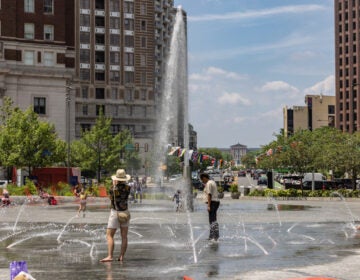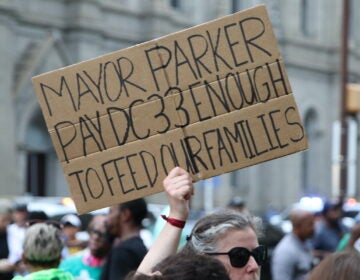EFCC meeting highlights need for city rezoning
At a recent East Falls Community Council meeting, it became clear why the government needs to rezone several parts of the city.
On Wednesday, the EFCC met to consider Peicha Chang’s application for a zoning variance, which she needs in order to operate a flower shop on the first floor of 3421 Conrad Street. The Department of Licenses & Inspections denied her original application for a permit because the property is zoned as residential, and she wants to use it for commercial purposes. On Feb. 7, the Zoning Board of Adjustment will hear Chang’s appeal.
But the EFCC, Chang and her lawyer are surprised that it has to go to the Board at all. According to neighbors, the first floor of the property has been commercial for years, with the East Falls Pharmacy most recently operating at 3421 Conrad Street.
“Many of us know it’s been commercial for decades-plus,” said Chang.
Because of the property’s past use, the EFCC voted in favor of the variance with little fanfare. (Technically, the zoning code doesn’t require that developers win the community’s support. However, the Zoning Board often inquires at hearings if the community approves.)
One EFCC member noted, “This may have been the shortest hearing on record.”
If the Zoning Code Commission (ZCC) and the city’s Planning Commission complete their rezoning of the city as planned, a hearing like this will probably not occur in the future. The ZCC is currently penning a new zoning code for the first time since the 1960s, which will go before City Council in February. Once that’s finished, the Planning Commission will remap Philadelphia, a task that will fully implement the code rewrite and will take several years to complete.
According to Eva Gladstein, executive director of the ZCC, the property at 3421 Conrad Street will probably be rezoned as commercial. Specifically, Gladstein says, it may be rezoned as CMX-2.5, a new commercial mixed-use district created under the proposed zoning code, which promotes walk-ability in areas that are both commercial and residential.
In other cities, such as New York, rezoning has caused great controversy because of its potential to gentrify areas, price out residents and drastically change a neighborhood’s character. Though the entire city is up for remapping, Gladstein claims that most areas in Philadelphia will remain as they are.
“It is likely that the current zoning for many areas is still appropriate,” says Gladstein. “[The Planning Commission] will work with communities, property owners and elected officials on rezoning portions of neighborhoods where the zoning map and the desired land use are not consistent.”
If 3421 Conrad Street is indeed rezoned as commercial, then a case like Chang’s never would have gone before the Zoning Board. In fact, the proposed zoning code allows for more non-conforming uses of properties. (A non-conforming use is a permitted violation of the zoning code because the property’s use was legal prior to the law being changed.)
One of the ZCC’s primary goals is to reduce the number of Zoning Board cases. This has drawn the ire of some residents, because the community often becomes involved at this point, and they fear that they’ll be left out under the proposed zoning code. The ZCC counters that they won’t be, thanks to the creation of the civic design review process, a committee made up of six planners, designers, architects and one community member. Under the proposed code, they’ll review certain large-scale and high-impact projects, and issue a non-binding recommendation on them.
“We’ll still have community input — at the planning stage,” says Gladstein. “The community will be able to set goals for land use, instead of getting involved after the fact.”
WHYY is your source for fact-based, in-depth journalism and information. As a nonprofit organization, we rely on financial support from readers like you. Please give today.




